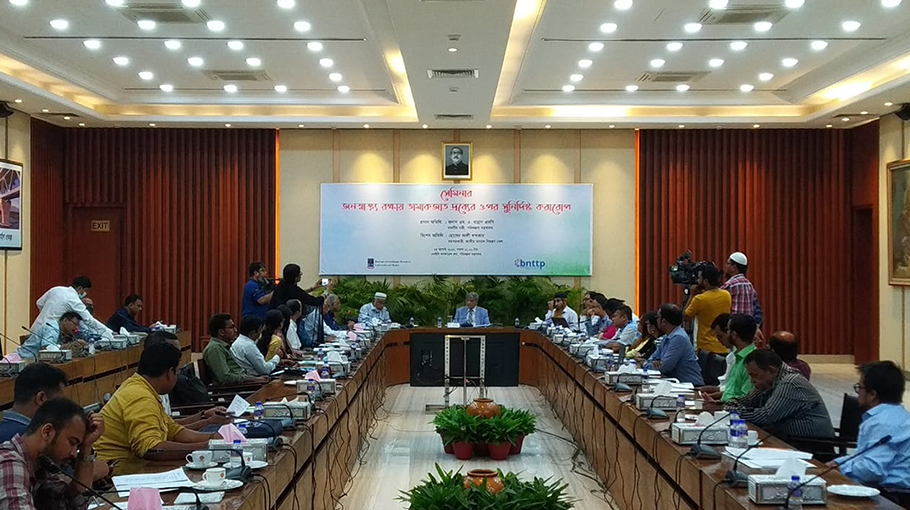‘Making country tobacco-free by 2040 is a national commitment: Mannan


Planning Minister MA Mannan stated at a seminar that research has shown that the government spends more on the health sector than it earns from the tobacco sector. Hence there is no doubt that tobacco is a harmful substance. Prime Minister Sheikh Hasina has already stated unequivocally that Bangladesh will be tobacco-free by 2040. It is a national commitment. Therefore, it is our duty to implement it.
The government’s revenue stream will expand substantially if the specific taxation system is implemented instead of the current Ad-valorem taxation system on tobacco products. Additionally, it will make revenue collection easier for the government. Additionally, there will be a significant improvement in public health. Several of our neighbouring countries, including the Philippines, Singapore, and Sri Lanka, have already profited from imposing specific taxation schemes in terms of raising revenue and protecting public health.
The speakers expressed these opinions at a national seminar on 'Specific Taxation on Tobacco Products to Protect Public Health' which was held on Wednesday. At the NEC conference room of the Ministry of Planning. The seminar was jointly organized by Bureau of Economic Research (BER), University of Dhaka and Bangladesh Network for Tobacco Tax Policy (BNTTP).
Minister of Planning, M. A. Mannan, was present as the chief guest in the seminar and the coordinator (Additional Secretary) of the National Tobacco Control Cell (NTCC), Hossain Ali Khandaker was the special guest. Syed Mahfuzul Haque, National Professional Officer of World Health Organization (WHO), Mostafizur Rahman, Lead Policy Advisor of Campaign for Tobacco Free Kids (CTFK), and Syed Mahbubul Alam Tahin, Technical Advisor of the international organization The Union were present as special discussants. The seminar was chaired by the former chairman of the National Board of Revenue, Dr. Nasir Uddin Ahmed.
BER's focal person Professor Dr. Rumana Huque delivered the keynote presentation at the seminar. Besides, Sushant Sinha, a tobacco control researcher and special correspondent of Ekattor Television gave a presentation on 'Tobacco company's tactics and intervention in revenue evasion'. The seminar was also attended by representatives from various government, private and international organizations, development workers, and journalists.
He also stated that, despite its best efforts, the NBR is sometimes unable to take immediate action because of various lobbying of tobacco companies. But I believe the government is doing a good job. Our Honourable Prime Minister has done a great job so far. In order to protect the future youth population, I ask that we all work together to combat this problem of tobacco.
Other speakers at the event said that it is possible to provide free heart treatment across the country if BDT 450 crore was allocated for this purpose. This expenditure can be met by imposing specific taxes and raising tax rates on tobacco. Besides, the government is losing about BDT 5000 crore of revenue annually as the cigarette companies are selling cigarettes at prices higher than the maximum retail price. The government should take immediate action to stop this tax evasion. Simultaneously, the retail sale of single-stick cigarettes and bidis should be banned. Because the government is losing a huge amount of revenue and consumers are also encouraged to keep on using tobacco. Apart from imposing specific taxation on tobacco products, the four-tiered tax structure of cigarettes should be gradually brought down to one-tier.
They also said that if a tobacco tax policy is formulated as announced by the Prime Minister, taxation on tobacco products will come under a general regulation. This will result in the introduction of a modern and effective taxation and tax collection system. As a result, the tobacco tax system's complexity will be decreased. Tax administration will become more effective and efficient by introducing a comprehensive tobacco tax policy that can be used to prevent tax evasion. At the same time, Bangladesh can become a people-friendly state by contributing to public health protection.

